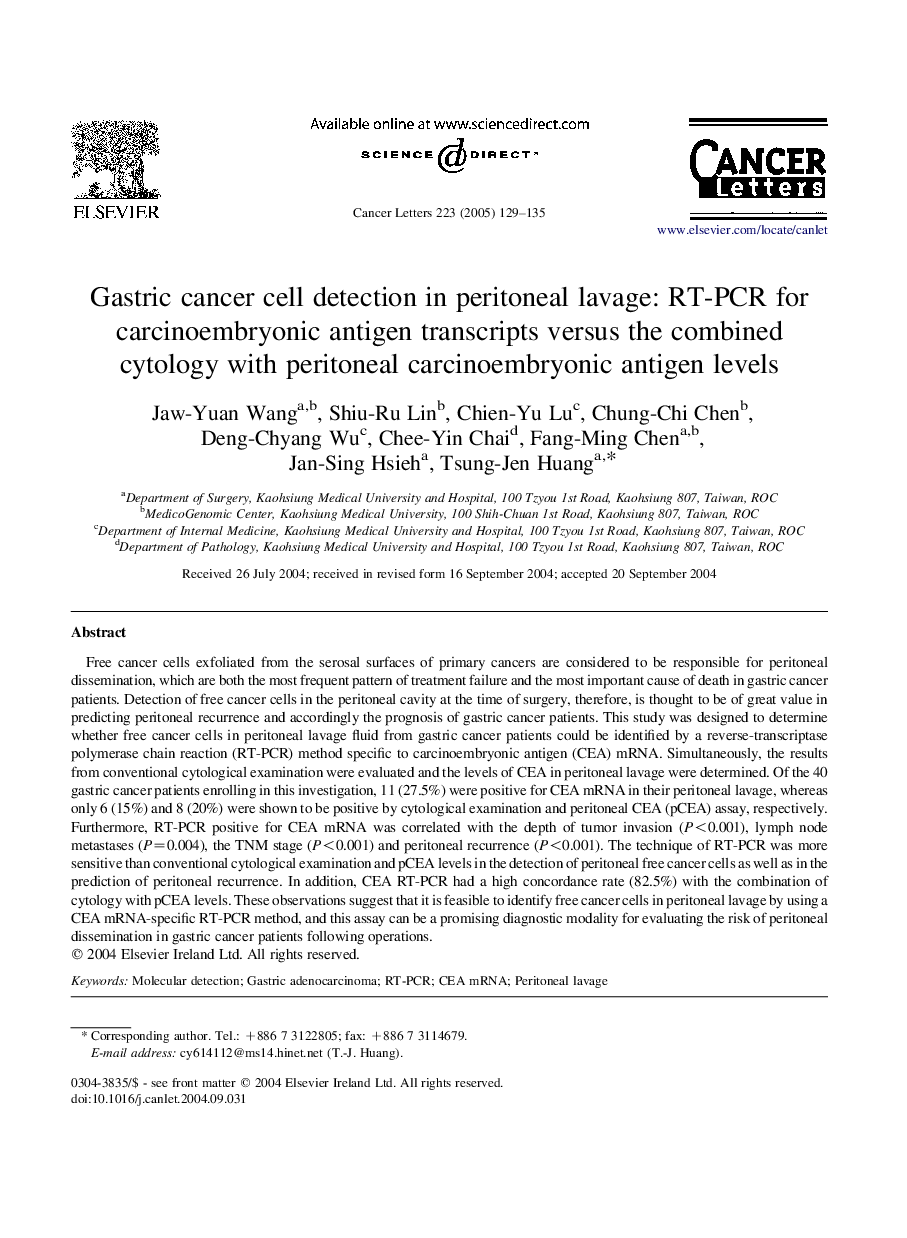| Article ID | Journal | Published Year | Pages | File Type |
|---|---|---|---|---|
| 10900295 | Cancer Letters | 2005 | 7 Pages |
Abstract
Free cancer cells exfoliated from the serosal surfaces of primary cancers are considered to be responsible for peritoneal dissemination, which are both the most frequent pattern of treatment failure and the most important cause of death in gastric cancer patients. Detection of free cancer cells in the peritoneal cavity at the time of surgery, therefore, is thought to be of great value in predicting peritoneal recurrence and accordingly the prognosis of gastric cancer patients. This study was designed to determine whether free cancer cells in peritoneal lavage fluid from gastric cancer patients could be identified by a reverse-transcriptase polymerase chain reaction (RT-PCR) method specific to carcinoembryonic antigen (CEA) mRNA. Simultaneously, the results from conventional cytological examination were evaluated and the levels of CEA in peritoneal lavage were determined. Of the 40 gastric cancer patients enrolling in this investigation, 11 (27.5%) were positive for CEA mRNA in their peritoneal lavage, whereas only 6 (15%) and 8 (20%) were shown to be positive by cytological examination and peritoneal CEA (pCEA) assay, respectively. Furthermore, RT-PCR positive for CEA mRNA was correlated with the depth of tumor invasion (P<0.001), lymph node metastases (P=0.004), the TNM stage (P<0.001) and peritoneal recurrence (P<0.001). The technique of RT-PCR was more sensitive than conventional cytological examination and pCEA levels in the detection of peritoneal free cancer cells as well as in the prediction of peritoneal recurrence. In addition, CEA RT-PCR had a high concordance rate (82.5%) with the combination of cytology with pCEA levels. These observations suggest that it is feasible to identify free cancer cells in peritoneal lavage by using a CEA mRNA-specific RT-PCR method, and this assay can be a promising diagnostic modality for evaluating the risk of peritoneal dissemination in gastric cancer patients following operations.
Related Topics
Life Sciences
Biochemistry, Genetics and Molecular Biology
Cancer Research
Authors
Jaw-Yuan Wang, Shiu-Ru Lin, Chien-Yu Lu, Chung-Chi Chen, Deng-Chyang Wu, Chee-Yin Chai, Fang-Ming Chen, Jan-Sing Hsieh, Tsung-Jen Huang,
